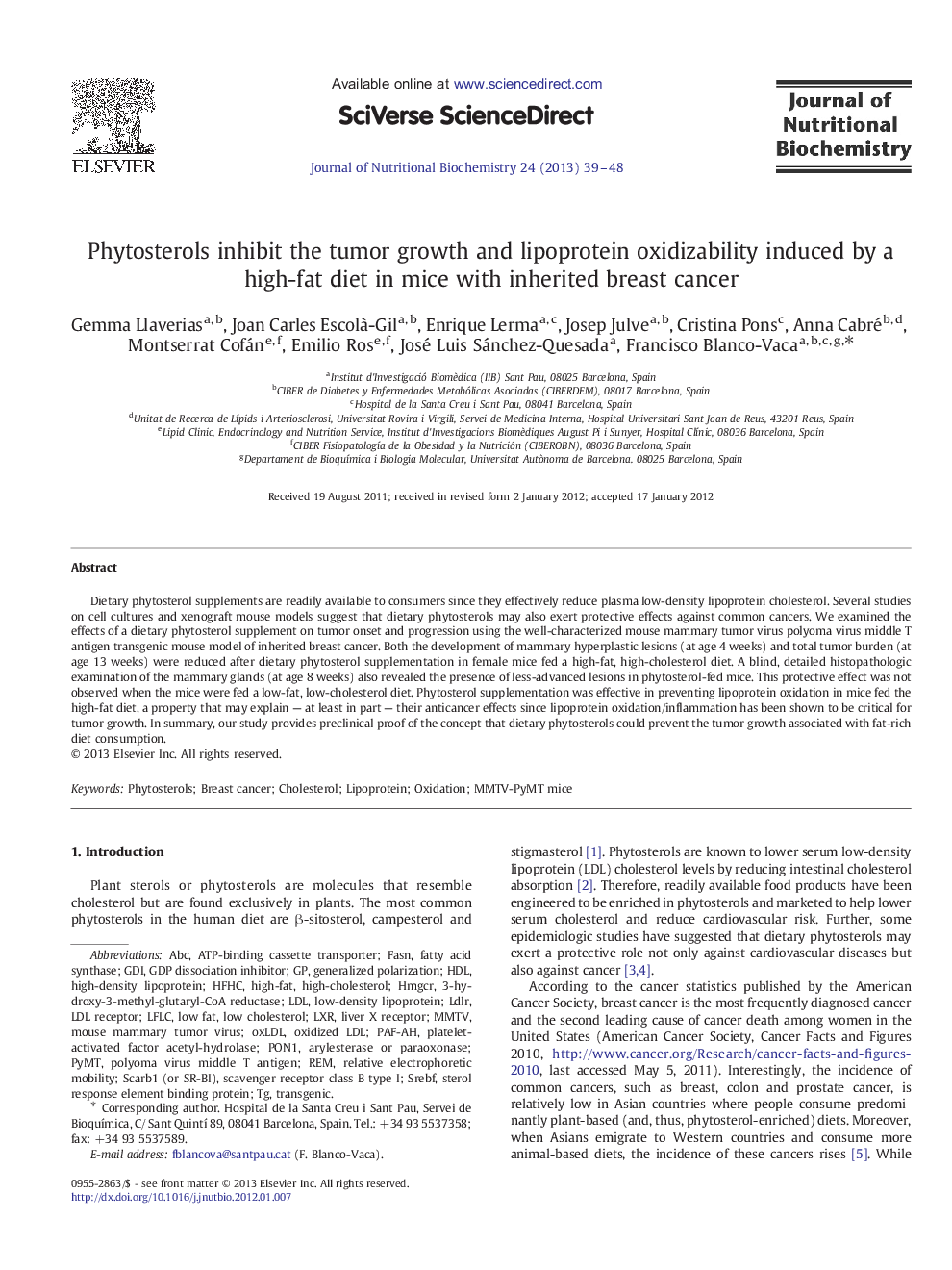| Article ID | Journal | Published Year | Pages | File Type |
|---|---|---|---|---|
| 8337477 | The Journal of Nutritional Biochemistry | 2013 | 10 Pages |
Abstract
Dietary phytosterol supplements are readily available to consumers since they effectively reduce plasma low-density lipoprotein cholesterol. Several studies on cell cultures and xenograft mouse models suggest that dietary phytosterols may also exert protective effects against common cancers. We examined the effects of a dietary phytosterol supplement on tumor onset and progression using the well-characterized mouse mammary tumor virus polyoma virus middle T antigen transgenic mouse model of inherited breast cancer. Both the development of mammary hyperplastic lesions (at age 4 weeks) and total tumor burden (at age 13 weeks) were reduced after dietary phytosterol supplementation in female mice fed a high-fat, high-cholesterol diet. A blind, detailed histopathologic examination of the mammary glands (at age 8 weeks) also revealed the presence of less-advanced lesions in phytosterol-fed mice. This protective effect was not observed when the mice were fed a low-fat, low-cholesterol diet. Phytosterol supplementation was effective in preventing lipoprotein oxidation in mice fed the high-fat diet, a property that may explain - at least in part - their anticancer effects since lipoprotein oxidation/inflammation has been shown to be critical for tumor growth. In summary, our study provides preclinical proof of the concept that dietary phytosterols could prevent the tumor growth associated with fat-rich diet consumption.
Keywords
ABCLXRHFHCMMTVREMPON1oxLDLLDLRHMGCRHDLPyMTGDI3-hydroxy-3-methyl-glutaryl-CoA reductasehigh-density lipoproteinOxidized LDLPAF-AHfatty acid synthaseOxidationGDP dissociation inhibitorrelative electrophoretic mobilityTransgenicATP-binding cassette transporterBreast cancerFasnPhytosterolsgeneralized polarizationLipoproteinLow-density lipoproteinLDLSrebfMouse mammary tumor virussterol response element binding proteinliver X receptorcholesterolLDL receptorscavenger receptor class B type I
Related Topics
Life Sciences
Biochemistry, Genetics and Molecular Biology
Biochemistry
Authors
Gemma Llaverias, Joan Carles Escolà -Gil, Enrique Lerma, Josep Julve, Cristina Pons, Anna Cabré, Montserrat Cofán, Emilio Ros, José Luis Sánchez-Quesada, Francisco Blanco-Vaca,
